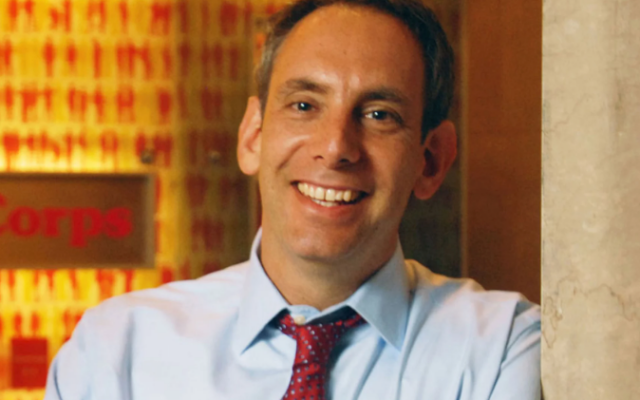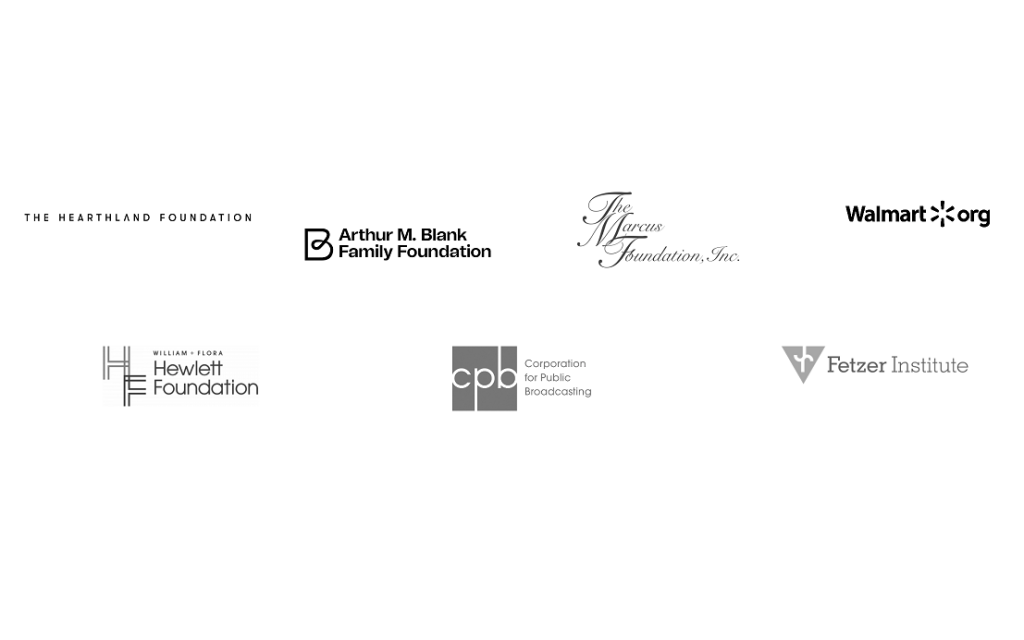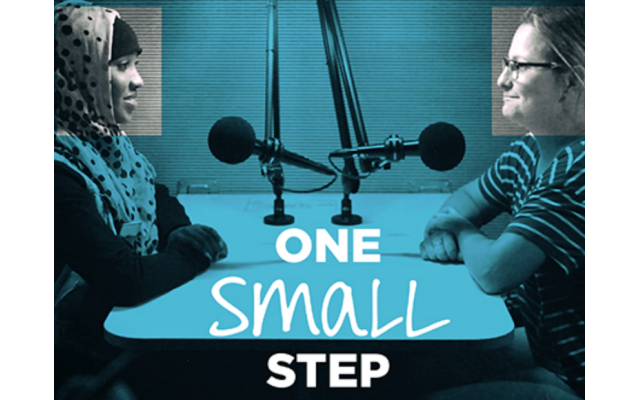Marcus and Blank Partner for Conversations
The program, which just expanded to Columbus, Ga., aims to bridge the political and social divide in America.
The Marcus Foundation, which was founded by Bernie Marcus and the Arthur M. Blank Family Foundation, have signed on as major donors to the One Small Step Program, a recently initiated program to get people of diverse political and social backgrounds to have conversations with one another. It’s a notable departure in the philanthropic history of Marcus and Blank, whose fortunes were based on the success of The Home Depot, which they co-founded.
Aside from their common interest in health care, they have generally developed their individual interests for giving. The One Small Step program, which has projects in three medium-sized American cities, last month expanded to a fourth, Columbus, Ga.
The president of the Blank Foundation, Fay Twersky, says the aim of the new effort is much the same as the organization that started it, the award-winning, non-profit StoryCorps project that is heard each morning on NPR’s “Morning Edition” news program. That series of recorded conversations is usually between two people who have an existing relationship. The One Small Step project is bringing people together who are not likely to know each other and talk about their disagreements.

“What we’re trying to do here is something very similar with StoryCorps,” Twersky commented. “One Small Step is trying to support more mutual understanding, more relationship building, more compassion across lines of difference.”
The president of the Marcus Foundation, Jay Kaiman, issued a similar state of support for the new funding.
“We believe in the power of storytelling to make individual connections that will build strong communities over time,” he wrote. “We’re pleased to partner with our friends at the Arthur M. Blank Family Foundation to bring One Small Step to the people of Columbus who have rich, valuable stories and experiences to share.”
The new project was launched at a press conference on Sept. 13 at the National Infantry Museum at Fort Moore, which was previously known as Fort Benning. The fort supports approximately 120,000 service personnel in the Columbus area.
Among the speakers there was Rabbi Larry Schlesinger, who returned to lead Temple Israel in Columbus last month, after having first served the synagogue from 1987 to 1993. He believes the true value of the program is not just getting people talking to one another but getting them to listen.
“It’s all about listening because I think the most important thing is just becoming aware of another’s story,” Rabbi Schlesinger said, “where they’re coming from, what they’ve been through, and why they think the way they do. The One Small Step Project has the power to bring people of different communities, of different theologies, of different cultures together.”
The StoryCorps program is an outgrowth of the work of David Isay, who started recording individual conversations in a booth in New York’s Grand Central Station 20 years ago. The program has since recorded and archived over 645,000 conversations. It was begun, in part, because of the lack of communication in his own family while he was growing up. His father, a prominent psychoanalyst, was a gay man who married and had a family, but kept his sexual orientation from his son while he was growing up. Isay believes more open communication in his family might have saved him a great deal of personal pain he suffered as a result of his father’s decision to remain silent.

When his Small Step program was just getting off the ground, Isay told a radio interviewer that if the idea could work about personal issues, maybe it could work about political ones as well. The goal he says is to make a relationship we describe as ‘them’ into one that becomes ‘us.'”
“What we do is we match strangersfrom across the political divide.” Isay said, “and have them come to a StoryCorps booth not to talk about politics, but just to sit face to face with someone who you might not have otherwise ever gotten to meet. Someone you might have feared, someone in this political climate who you might have thought was evil or wanted dead, you know, to be perfectly honest.”
So far, according to Neil Griffith, the field director for the Georgia program, during the first two weeks nearly 300 people have signed up to talk through a network of local partnerships and on the One Small Step website. The first recordings in Columbus are scheduled for Oct. 16 and 17.
The goal is to record a thousand or more conversations of about 50 minutes each in the community over the next three years. Every participant gets a copy of their recording and the conversation is archived in the American Folklore Center of the Library of Congress. According to Griffith the goal is for each participant to see not just the beliefs that separate them, but the ones that they share, as well.
To learn more about the One Small step program go to www.storycorps.org/discover/onesmallstep/




comments